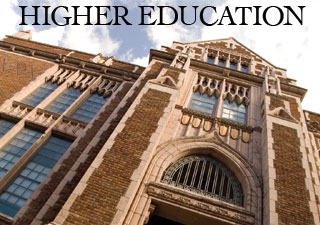Media
University Subsidy Bills Nixed, What Now?
 Last night, Pennsylvania House Democrats voted to defeat legislation on state subsidies for Penn State University, the University of Pittsburgh, and Temple University, as well as for the University of Pennsylvania veterinary programs (while passing legislation for subsidies to Lincoln University). The Senate followed suit, on a party line vote. Democrats wanted more spending than Republicans, so they killed the legislation entirely.
Last night, Pennsylvania House Democrats voted to defeat legislation on state subsidies for Penn State University, the University of Pittsburgh, and Temple University, as well as for the University of Pennsylvania veterinary programs (while passing legislation for subsidies to Lincoln University). The Senate followed suit, on a party line vote. Democrats wanted more spending than Republicans, so they killed the legislation entirely.
If you are wondering how Democrats, being in the minority, killed legislation, it is because these are “non-preferred” appropriations, or earmarks to specific institutions. Since these institutions are not actually part of state government (if you are wondering why institutions that aren’t actually part of state government get direct funding at all, it is one of many unanswered questions on college funding), the measures require a two-thirds vote to pass. See Article III, Section 30 of the Pennsylvania Constitution.
These bills would represent about a 19 percent reduction from this year’s state appropriation—cuts of about 1.5 to 3 percent of their total operating budgets. Both parties have tried to claim they are fighting “for the students,” but this debate is not about students. Higher education subsidies have neither kept tuition low nor increased graduation rates. Rather, this is about the demands of taxpayer-funded lobbyists for universities whose administrative spending has skyrocketed, while construction projects continue even though new facilities are underutilized.
So what will happen now? There are five possibilities:
- The House and/or Senate with “reconsider” the legislation, and this time Democrats with vote yes.
- This discussion will be postponed until the fall.
- Legislators will stop giving direct subsidies to these specific universities (perhaps to replacing them with funding directed at the students, as they should).
- Republicans will capitulate and agree to the higher spend number the Democrats want.
- The entire state budget process will take a new course, perhaps even emboldening Republicans to push their wish list items like school choice and voter referendum on all school tax hikes.